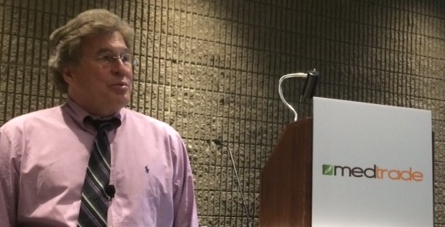AMARILLO, TX – In prior articles, I discussed Section 6402 of the Affordable Care Act (“ACA”) and subsequent regulations that state that if a DME supplier suspects (or reasonably should suspect) that it should not have been paid for certain claims, then it has six months to investigate whether such claims were appropriate and, if inappropriate, to quantify the overpayment.
Following the investigation and quantification, the supplier has 60 days within which to report and repay the overpayment to CMS. Failure to do so may result in civil monetary penalties under the Federal False Claims Act (“FCA”).
 A claim can be improper for a number of reasons, such as: (i) lack of documentation, (ii) incorrect documentation, (iii) failure to adhere to CMS guidance regarding the product being provided, and (iv) a claim arising out of an arrangement that violates the Medicare anti-kickback statute, beneficiary inducement statute, telephone solicitation statute, and/or the Stark physician self-referral statute.
A claim can be improper for a number of reasons, such as: (i) lack of documentation, (ii) incorrect documentation, (iii) failure to adhere to CMS guidance regarding the product being provided, and (iv) a claim arising out of an arrangement that violates the Medicare anti-kickback statute, beneficiary inducement statute, telephone solicitation statute, and/or the Stark physician self-referral statute.
Before the ACA was enacted, when a DME supplier would determine that a claim should not have been paid, then it was common practice to “go and sin no more” – that is – the supplier would not voluntarily refund the past claims but would correct the problem from a “go forward” standpoint. After the ACA was enacted, this “go and sin no more” approach became riskier. If the supplier only corrected the problem from a “go forward” standpoint, but did not refund the overpayment, then the supplier exposed itself to FCA liability. Even with this increased risk, suppliers would often accept the risk of not voluntarily repaying the overpayment.
Well……now this risk has ratcheted up a notch. CGS recently sent letters to DME suppliers. The letters (i) state that the OIG has identified potential overpayments related to claims previously paid to the supplier and (ii) include information that allows the supplier to identify the claims in question. The letters then paraphrase the ACA language by pointing out that the supplier should review the claims and let CGS know if the supplier concludes that the claims are proper or improper. If the supplier concludes that some claims are improper, then the CGS letter points out that the supplier has an obligation to report and refund to CMS.
What makes the CGS letter ominous is that, under the “60 Day Rule,” the letter sets up the supplier for potential liability under the FCA. Assume that (i) the supplier ignores the letter, the supplier does not respond, and CGS audits the claims described in the letter; or (ii) the supplier does not audit its files but simply reports to CGS that the claims are proper, and CGS audits the claims described in the letter; or (iii) the supplier audits its files, the supplier reports to CGS that the claims are proper, and CGS audits the claims described in the letter. Assume that in any of these three scenarios, CGS concludes that all or some of the claims are improper; in this scenario, there is a risk that CGS will turn its findings over to the OIG. If this occurs, then there is a risk that the OIG and the Department of Justice will instigate an investigation of the supplier under the FCA.
The bottom line is that the DME supplier should take the CGS letter seriously. The supplier should audit, or have an outside company audit, the claims listed in the letter. The supplier should report its findings to CGS. If the audit reveals that some claims should not have been paid, then the supplier should voluntarily repay those claims. Although the letter states that the supplier has six months to conduct its investigation and then has 60 days thereafter to voluntarily repay any overpayments, the wisest course of action is for the supplier to complete its investigation much sooner.
Jeffrey S. Baird, JD, is chairman of the Health Care Group at Brown & Fortunato, PC, a law firm based in Amarillo, Tex. He represents pharmacies, infusion companies, HME companies and other health care providers throughout the United States. Mr. Baird is Board Certified in Health Law by the Texas Board of Legal Specialization, and can be reached at (806) 345-6320 or [email protected].


